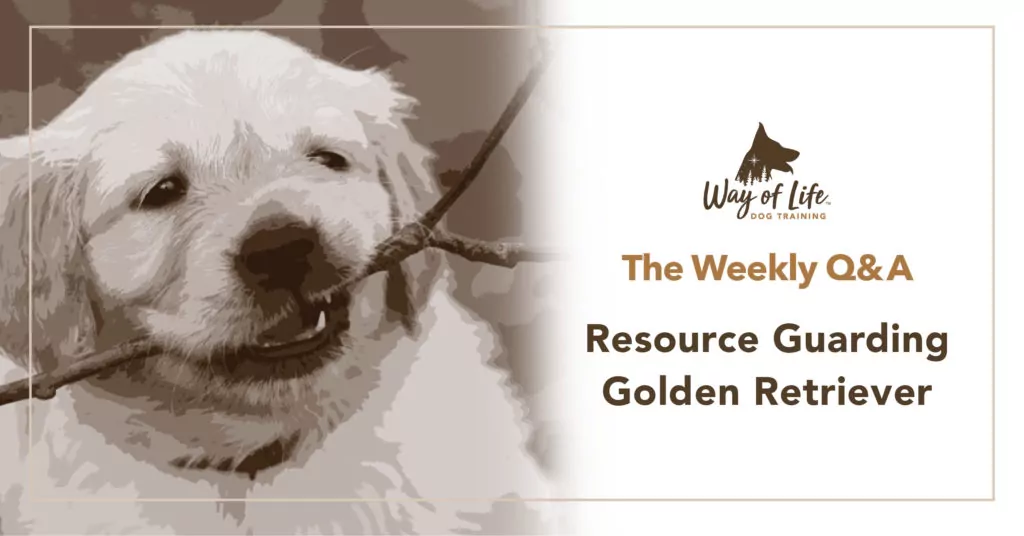
Q: We have a 7-month-old golden retriever puppy who has resource guarding issues. Mainly when he has something in his mouth that is too small that he wants to eat/chew and when we try to grab it from his mouth, he will snap. Also on walks he will try to eat everything off the ground, which makes it hard for us to enjoy our walks. Is this something you can help with?
A: Thank you for reaching out to us about your golden retriever puppy. I am sorry to hear that things have been such a challenge, at a time when you want to be enjoying your new pup. The issues that you report are common and luckily, there are ways to work with these challenges. I will focus my response on the specific issues that you are dealing with and then move to larger way-of-life considerations.
First, you have a golden retriever pup, a breed of dog that gets deep gratification out of grabbing, holding, and carrying things in their mouths. Puppies in particular have a strong oral fixation of wanting to put things in their mouths so you are in many ways dealing with normal behavior for both the age and breed of your puppy.
With that said, it is up to us to control the environment rather than controlling the puppy or worse, expecting the puppy to behave when by definition, he not at an age or level of maturity to be able to exercise self-control. Yet we often ask puppies to act as grown-ups, to listen, and to reign in their innate instincts. We also forget how fragile their self-esteem is at this age and think it’s okay to discipline and correct them. Rather than try to pry things out of his mouth, work on trading him for tasty treats.
What ends up happening is that pups now feel that they are in conflict with us, the very people they’re supposed to rely on for guidance, comfort, and safety. This is a very difficult state for any puppy or dog. It is a core reason why so many dogs are struggling with behavioral issues, big or small, for lacking a harmonious relationship with the people they most depend on.
It’s also essential that we place the specific behavior in its right context and talk about the puppy’s way of life. At Way of Life Dog Training, we look beyond behavior and understand behavioral issues as symptoms of concerns with how the way of life is organized.
Therefore, I encourage you to consult our free Puppy Primer and find out how to structure the elements comprising your way of life, including your approach to socialization, how to manage space and boundaries, how to harness your dogs’ drives through exercise, training, and sport, and how to shape your own attitude and mindset toward the dog so that your dog can succeed as a puppy, teen, and eventual adult.
https://wayoflifedogtraining.com/puppy-primer/
Good luck!